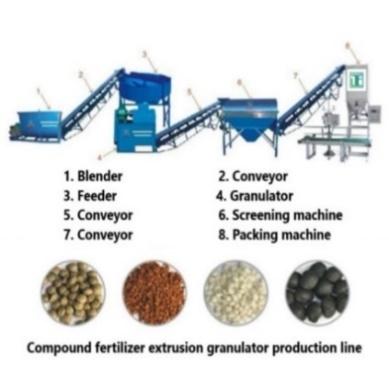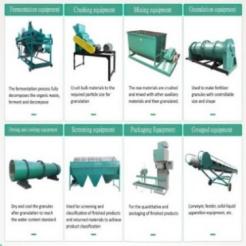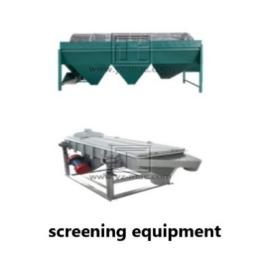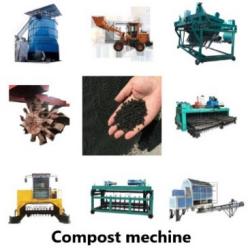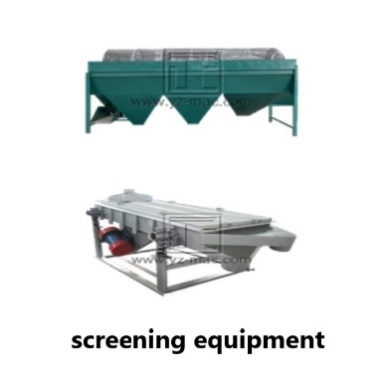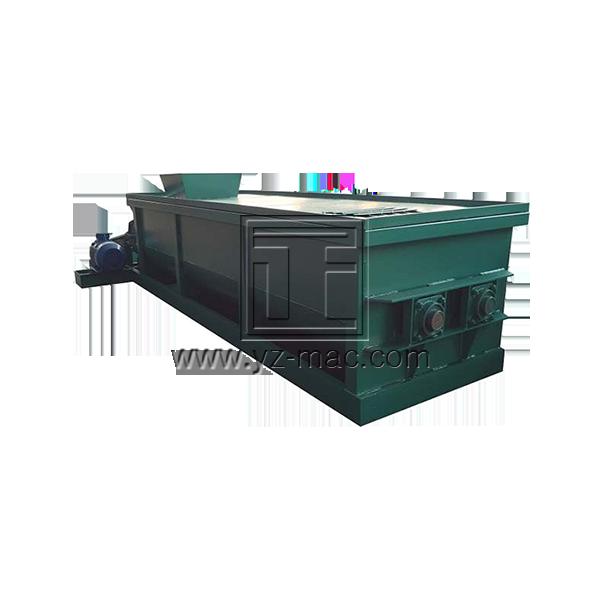Fertilizer machinery
Fertilizer machinery plays a crucial role in the production of fertilizers, contributing to efficient and sustainable agriculture practices. These machines are designed to handle various processes involved in fertilizer production, including raw material preparation, blending, granulation, drying, and packaging.
Importance of Fertilizer Machinery:
Fertilizer machinery plays a pivotal role in meeting the increasing global demand for fertilizers and ensuring their quality. These machines offer several key benefits:
Efficient Production: Fertilizer machinery streamlines the manufacturing process, allowing for efficient and continuous production. They automate various tasks, reducing manual labor and increasing productivity.
Consistent Quality: Fertilizer machinery helps maintain consistent quality throughout the production process. They ensure accurate blending of raw materials, precise granulation, and controlled drying, resulting in fertilizers with uniform nutrient content and physical characteristics.
Customization and Flexibility: Fertilizer machinery allows for the customization of fertilizer formulations to meet specific crop and soil requirements. They provide the flexibility to adjust nutrient ratios, particle sizes, and other parameters, catering to diverse agricultural needs.
Waste Reduction: By optimizing the production process, fertilizer machinery minimizes material waste and ensures efficient use of resources. This contributes to sustainable practices and reduces the environmental impact of fertilizer production.
Types of Fertilizer Machinery:
Crusher/Shredder: Crushers or shredders break down larger raw materials into smaller particles, facilitating further processing and blending. They are commonly used to reduce the size of raw materials like rock phosphate, animal manure, or crop residues.
Mixer/Blender: Mixers and blenders ensure thorough and homogenous blending of different fertilizer ingredients. They combine dry or liquid materials, including nitrogen, phosphorus, potassium, and micronutrients, creating a well-balanced fertilizer mixture.
Granulator: Granulators convert blended materials into granules, enhancing their handling, storage, and nutrient release properties. Granulation improves the controlled release of nutrients and reduces dust formation during application.
Dryer: Dryers remove excess moisture from the granulated fertilizer, ensuring proper storage and preventing microbial growth. They utilize heat and airflow to achieve the desired moisture content.
Coating Machine: Coating machines apply protective coatings to the granules, improving their resistance to moisture, nutrient leaching, and dust formation. Coated fertilizers provide prolonged nutrient release and enhanced efficiency.
Packaging Machine: Packaging machines automate the filling, weighing, and sealing of fertilizers into bags or other containers, ensuring accurate and efficient packaging for distribution.
Applications of Fertilizer Machinery:
Commercial Fertilizer Production: Fertilizer machinery is essential for large-scale commercial fertilizer production facilities. These machines enable high-volume production, consistent quality control, and efficient packaging for distribution to agricultural markets.
Custom Fertilizer Blending: Fertilizer machinery is utilized by agricultural cooperatives, blending facilities, and fertilizer retailers to create customized fertilizer blends tailored to specific soil and crop requirements. They offer the flexibility to adjust nutrient ratios and meet farmers’ diverse needs.
Organic Fertilizer Production: Fertilizer machinery is employed in the production of organic fertilizers, utilizing organic raw materials such as animal manure, compost, and crop residues. These machines help process organic materials into high-quality fertilizers suitable for organic farming practices.
Specialty Fertilizer Production: Fertilizer machinery is used in the manufacturing of specialty fertilizers, including micronutrient-enriched fertilizers, slow-release formulations, and environmentally friendly alternatives. These machines ensure precise blending and granulation, meeting the specific requirements of specialty crops and applications.
Fertilizer machinery plays a vital role in enhancing fertilizer production efficiency, ensuring consistent quality, and meeting the growing demand for fertilizers. By utilizing crushers, mixers, granulators, dryers, coating machines, and packaging machines, the industry can optimize production processes, reduce waste, and produce high-quality fertilizers tailored to specific agricultural needs.


